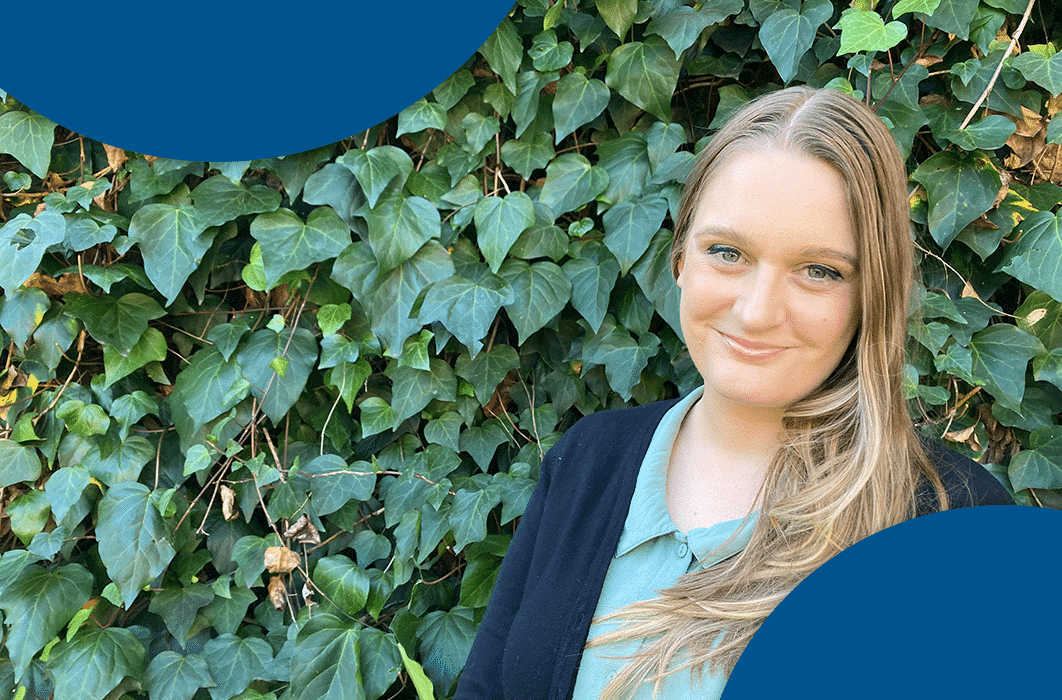Chloe Allen is an Awabakal and Dunghutti woman. Her new role as Project Director of Closing the Gap at MultiLit is one dear to her heart and a responsibility she feels honoured to have.
As the first person in her family to complete school, Chloe has been passionate about the opportunities education provides since growing up in the Northern Rivers on Bundjalung country. Her career has seen her working in small schools and establishing a Closing the Gap school in NSW, with the success of every student being as important as the next.
Get to know Chloe below.

What is your background and experience, and what inspired you to go into education?
I am a proud Awabakal and Dunghutti woman. I grew up in the Northern Rivers on Bundjalung country and was the first member of my family to complete school; I experienced first-hand the power that completing school had in changing my life. I have always wanted to see other young people – especially Aboriginal and Torres Strait Islander students – finish school and have the confidence to go on to be leaders in their chosen fields.
After completing a Bachelor of Technology Education, I have worked in small regional schools most of my career. Last year, I was given the opportunity to establish a Closing the Gap school in Tweed Heads, NSW. This special assistance school gave students the opportunity to work in a small-group, culturally safe school setting, with the intention to catch up and re-enter mainstream education with confidence in Year 7. We have seen great success, and I was privileged to have led that community for the past few years.
You’ve recently joined MultiLit as Project Director – Closing the Gap. What is the MultiLit Closing the Gap Initiative and why is it so important?
It is well known that there is a clear divide between many health, education, and wellbeing outcomes for Aboriginal and non-Aboriginal people in our country. This has come about due to generations of displacement, disenfranchisement and the trauma that has followed. As a result of many complex factors, a considerable number of our Aboriginal and Torres Strait Islander students are leaving school reading at levels significantly below the minimum standards.
The Closing the Gap project is providing MultiLit literacy programs for students in majority Indigenous schools, aiming to close the gap on the literacy levels of Indigenous students compared to non-Indigenous students.
By the end of 2026, we hope to see growth of all students involved in the project. The goal is to have them reading within the average range of their age and year level using the suite of MultiLit programs including InitiaLit and MacqLit. It is incredibly important that these young people leave primary school with the skills and confidence they need to be able to access the curriculum in high school and have the skills they need for life.
What are some of the key responsibilities in your role?
I will be working alongside the 42 schools currently involved with the Closing the Gap project. This will involve frequently visiting schools across Australia, supporting leaders, teachers and support staff in the implementation and collection of student data as part of the project. I see it as my responsibility to do anything I can to ensure that the students who are part of this program are getting the best opportunities to achieve success.
What does working on the MultiLit Closing the Gap Initiative mean to you?
I think it is significant that I am beginning my time as Project Director during 2023 NAIDOC week. The theme this year is ‘For Our Elders’. Our students have these opportunities today because of the work of those that have gone before us. Our elders have the most important voices in our communities and to see them working in schools, encouraging the next generation is the absolute best part of this job. This initiative is so important for many communities across the country and the weight of what we are trying to achieve is not lost on me. It is an immense honour to work with our schools to achieve success for our students. I’m incredibly excited for the future of the next generation of First Nations young people in this country.
What’s one thing you wish more people knew about literacy?
Literacy really is freedom.